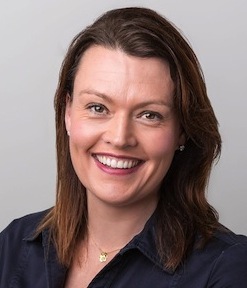Hannah Blakely-McWilliams
BA (Hons), MSc, PGDipClinPsych
Senior Registered Clinical Psychologist
Hannah is a clinical psychologist working in the Blenheim (Nelson Marlborough area) and remotely with extensive experience in all aspects of the clinical psychology. She works alongside clients and their families who are experiencing challenges related to, health, neurodivergence, mental health, stress, trauma, chronic pain, relationships, sexual abuse, endometriosis, adjustment to injury, and life role changes.
Hannah works with adults using psychological strategies and skills from treatment modalities mentioned below to better cope with their daily functioning. Her approach is centred on the overall well-being of the individual as well as the impact on partners and the wider family system.
Hannah most often utilises the treatment modalities Eye Movement Desensitization and Reprocessing therapy (EMDR), Cognitive Behavioural Therapy, MetaCognitive Therapy and Acceptance and Commitment Therapy (ACT) focusing on incorporating the interactions and processes of thoughts, feelings, behaviour.
She works well as part of team alongside medical specialists, nurses, midwives, physiotherapists and general practitioners.
Specifically, Hannah’s background clinical training encompasses all aspects of general mental health, in particular, trauma, anxiety disorders, depression, adjustment, loss and grief, pain, and sexuality related issues as they impact upon daily functioning. She is an ACC provider for assessment and treatment for sensitive claims for pain and mental injury due to physical injury. She works to support individuals, couples and families regarding issues associated with their difficulties.
Hannah provides professional reflective practice supervision and mentoring for clinical psychologists and other medical professional scopes.
What is the difference between a clinical psychologist, psychiatrist, psychotherapist, counsellor, or coach?
Clinical psychologists - To practice as a psychologist in New Zealand it is necessary to be registered by the Psychologists Board. It takes a minimum of six years university training to become a clinical psychologist, the same amount of time as a medical degree. A clinical psychologist may provide counselling and psychotherapy but will also draw from rigorous scientific research to ensure that treatments are effective and well matched to what the client needs and wants. Clinical psychologists are more “active” than psychotherapists and counsellors. Most specialise in one or more areas of clinical practice and develop high levels of specific expertise.
Clinical psychologists in New Zealand do not prescribe medication. They have a good understanding of relevant medicines and will be able to identify when you should consult your doctor for medical help and be able to provide advice to your doctor on suitable medication.
Psychiatrists - A psychiatrist has studied medicine first, then gone on to specialise in mental illness. Psychiatrists must be registered as medical practitioners. They often prescribe medications. In practice, psychiatrists and clinical psychologists often work together.
Psychotherapists - In New Zealand, psychotherapy commonly refers to psychological therapies that are based on mostly psychodynamic theories of human behaviour and personality. These theories emphasise the importance of unconscious mental processes, early childhood experiences, and the role of emotions in shaping behaviour.
Counsellors - Are talking therapists who approach problems and life difficulties experienced. A counsellor will not resolve difficulties for you but may help you see things more clearly and encourage new ways of coping. Counsellors who are registered with the professional association are trained with a minimum of a Bachelor degree and have regular supervision and an annual practising certificate.
Coaches - Some people advertise themselves as providers of coaching. Coaching, like counselling, is meant to help “healthy” clients. Instead of helping them solve problems, coaching focuses on helping persons utilise their abilities more effectively than they have previously and is often used in business settings with executives. No license or official registration is needed to practice coaching.
It is encouraged to ask the clinician you are considering what their qualifications and scope of practice and experience/speciality may be to best suit your needs.


